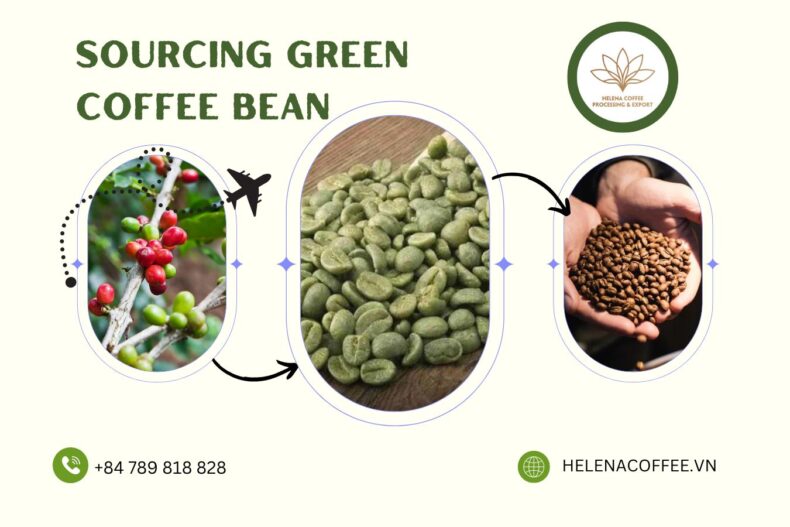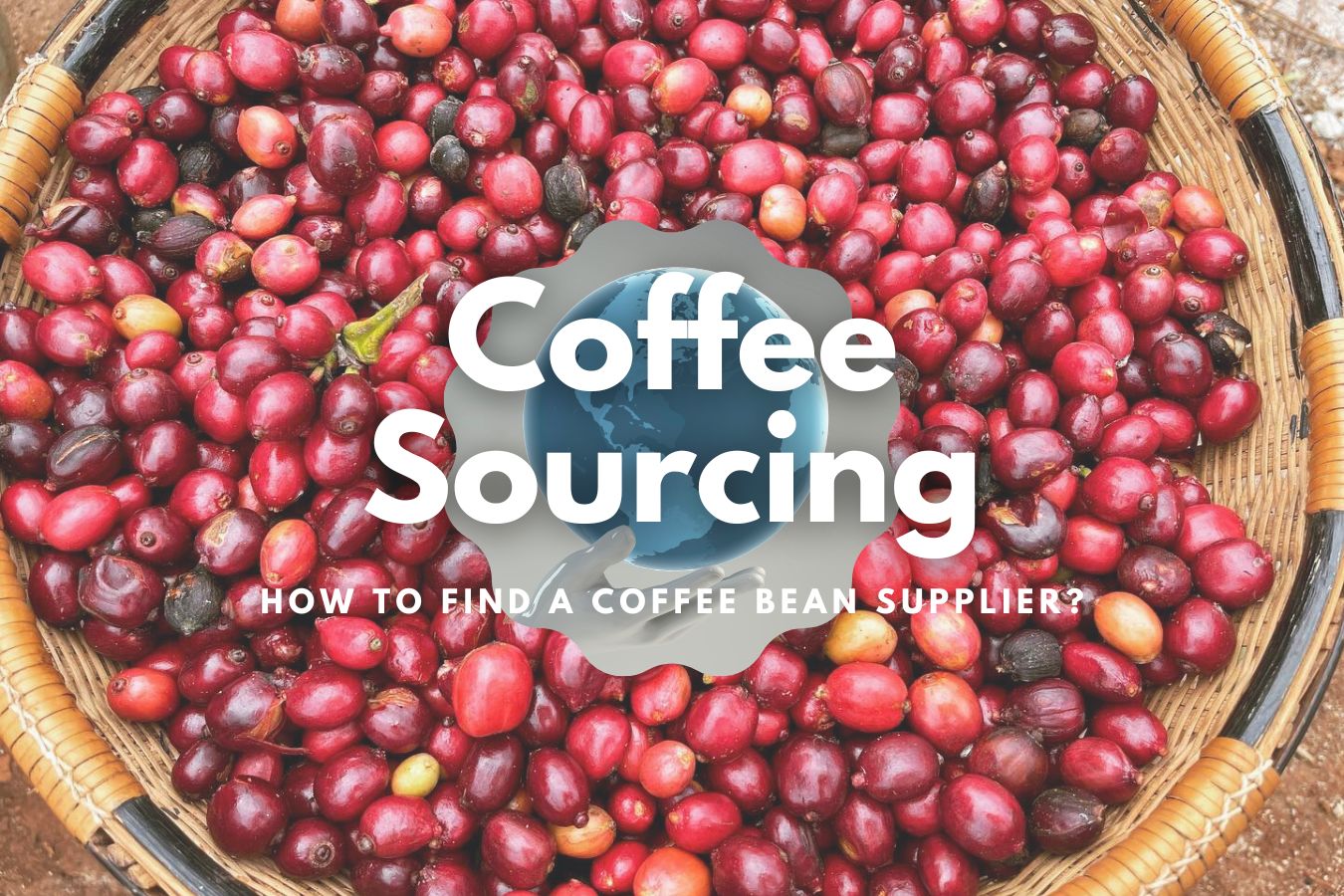
Coffee Sourcing: In recent years, the Vietnamese coffee industry has seen significant growth, and the country is now one of the world’s largest coffee exporters. With its growing reputation for producing high-quality coffee, Vietnam is becoming an increasingly popular source of coffee beans for coffee roasters and distributors worldwide.
At Helena Coffee, we are proud to source our coffee beans from Vietnam and work closely with our suppliers to ensure that our coffee beans are grown sustainably and ethically. Whether you are looking for a rich and bold coffee or a smooth and subtle coffee, our Vietnamese coffee beans will meet your needs.
Importance of coffee sourcing for coffee quality and sustainability
Coffee sourcing plays a critical role in determining the quality and sustainability of coffee beans. Sourcing coffee beans involves identifying the best coffee beans, building relationships with coffee farmers, and evaluating the beans for quality and sustainability. By doing so, coffee roasters and distributors can ensure they provide their customers with high-quality coffee beans that meet their expectations.
Regarding quality, coffee sourcing is essential for ensuring that the coffee beans are of the highest quality. Coffee beans grown in different regions, climates, and altitudes can have distinct flavor profiles. By sourcing coffee beans from specific areas or farmers, coffee roasters and distributors can ensure they provide their customers with coffee beans with a particular flavor profile.
Regarding sustainability, coffee sourcing is essential for ensuring that coffee beans are grown in an environmentally-friendly manner. This involves working with coffee farmers to ensure they use sustainable farming practices, such as conserving water and reducing waste. By doing so, coffee roasters and distributors can help minimize the impact of coffee production on the environment and ensure that their customers are drinking responsibly and sustainably drinking coffee.
At Helena Coffee, we understand the importance of coffee sourcing for both quality and sustainability. That’s why we are committed to sourcing our coffee beans from ethical and sustainable sources, ensuring that our customers receive only the best coffee beans on the market.
The process of coffee sourcing
The process of coffee sourcing involves three key steps: identifying quality coffee beans, building relationships with coffee farmers, and evaluating coffee beans for quality and sustainability.
Identifying quality coffee beans:
This involves researching and testing different coffee beans to determine which ones are of the highest quality. This may include tasting other coffee beans, analyzing their flavor profiles, and evaluating their growth conditions. By doing so, coffee roasters and distributors can identify the best coffee beans to source for their customers.
Building relationships with coffee farmers:
Once quality coffee beans have been identified, the next step is to build relationships with the farmers who grow the coffee beans. This involves working closely with the farmers to understand their growing practices, needs, and goals. By building strong relationships with coffee farmers, coffee roasters and distributors can ensure they are sourcing their coffee beans from responsible and sustainable sources.
Evaluating coffee beans for quality and sustainability:
The final step in the coffee sourcing process is to evaluate the coffee beans for quality and sustainability. This involves analyzing the flavor profile of the coffee beans, assessing their growth conditions, and ensuring that the farmers who grow the coffee beans use sustainable and ethical practices. By doing so, coffee roasters and distributors can ensure that they provide their customers with high-quality coffee beans grown responsibly and sustainably.
At Helena Coffee, we take a comprehensive approach to coffee sourcing, ensuring that our coffee beans meet the highest standards for quality and sustainability. Whether you are a coffee connoisseur or a coffee lover just looking for a great cup, you can trust Helena Coffee to provide you with the best coffee beans.
The benefits of ethical coffee sourcing
Ethical coffee sourcing has numerous benefits, including fair treatment of coffee farmers, better quality coffee beans, and a positive environmental impact.
Fair treatment of coffee farmers:
One of the primary benefits of ethical coffee sourcing is that it ensures that coffee farmers are treated fairly. This includes providing them fair wages, safe working conditions, and a stable income. By doing so, coffee roasters and distributors can help to improve the lives of coffee farmers and their families.
Better quality coffee beans:
Ethical coffee sourcing also leads to better-quality coffee beans. By working closely with coffee farmers, coffee roasters and distributors can ensure that the coffee beans are grown using sustainable and responsible practices. This can result in coffee beans with a higher-quality flavor profile and a more consistent taste.
Positive impact on the environment:
Ethical coffee sourcing also has a positive impact on the environment. Coffee roasters and distributors can help reduce coffee production’s environmental impact by working with coffee farmers to promote sustainable farming practices. This can include reducing water usage and waste and conserving natural resources.
At Helena Coffee, we understand the importance of ethical coffee sourcing and are committed to providing our customers with coffee beans sourced responsibly and sustainably. By doing so, we are helping to improve the lives of coffee farmers, offer better quality coffee beans, and positively impact the environment.
Helena Coffee’s approach to coffee sourcing
At Helena Coffee, we take a comprehensive approach to coffee sourcing centered on our commitment to ethical and sustainable sourcing practices. Our approach includes the following:
Commitment to ethical and sustainable sourcing:
Helena Coffee is committed to sourcing its coffee beans ethically and sustainably. This involves working closely with coffee farmers to ensure that they use sustainable farming practices and treat their workers fairly. By doing so, we are helping to ensure that our coffee beans are of the highest quality and are grown responsibly and sustainably.
Building strong relationships with coffee farmers:
Building strong relationships with coffee farmers is essential to ensuring high-quality coffee beans. That’s why we work closely with our suppliers to understand their needs and goals and ensure they use sustainable and ethical practices. By doing so, we can ensure that our customers receive only the best coffee beans on the market.
Ensuring high-quality coffee beans for customers:
Our ultimate goal at Helena Coffee is to provide our customers with the best coffee beans. To achieve this, we carefully evaluate each coffee bean for quality and sustainability and work closely with our suppliers to ensure that our coffee beans meet our high standards. Whether a coffee connoisseur or a coffee lover looking for a great cup, you can trust Helena Coffee to provide high-quality coffee beans sourced responsibly and sustainably.
In conclusion, Helena Coffee’s approach to coffee sourcing is centered on our commitment to ethical and sustainable sourcing practices. By building strong relationships with coffee farmers, evaluating coffee beans for quality and sustainability, and ensuring high-quality coffee beans for our customers, we are helping to promote a more sustainable and responsible coffee industry.
Decide on your Flavor Profile and where you want to go
Choosing the flavors you want to show off in your coffee shop should be the first step in your search for the best beans to make them. For example, do you want to serve an espresso with a fruity taste? Then look for blends or single-source coffees from places like Ethiopia or Colombia.
Also, knowing how coffee affects the drink’s flavor is essential. It can be natural, washed, or semi-washed/honey. There are three types: This can change based on the climate, the farmer’s choice, or tradition. For example, the natural process in Brazil is the most common because of the environment and tradition.
Recommended: Check out our guide for more information on how roasting works.
So, how does processing affect the taste of a coffee? Here’s a quick look at the three most common ways to process coffee beans and how they affect the flavor of the green beans that come from them.
Once the coffee cherries are ripe, farmers pick them from the trees, place them on drying racks, and sun-dry them to remove the pulp and mucilage. This method is natural or unwashed (the fruit surrounding the bean). This usually takes three to six weeks, and it has been known to make the food taste better and have more body. Many use this method in dry and warm places like Ethiopia, Brazil, or Yemen.
Before sun-drying, farmers remove the skin of ripe coffee cherries but keep the sticky mucilage and flesh inside. This process is called “pulped natural/honey.” This process, which usually takes two weeks and requires much attention to the beans, makes them sweet and well-balanced. It’s used the most in Costa Rica.
After picking ripe coffee cherries, farmers put them in a vat of water and skim off any that float to the top. This makes sure that all of the coffee is clean. Farmers then use a lot of water to remove the pulp and mucilage from the rest of the cherries. They either ferment the cleaned beans or use a machine to wash them, and then they dry them, which is the last step.
This process usually takes about four weeks, and it lets the coffee keep the flavor profile that comes from the bean itself instead of taking on a flavor from the way it was made. It’s used primarily in countries with wet climates, like Kenya, where there isn’t enough sun to dry clothes. However, washed coffees are becoming increasingly common in any country that makes high-quality Arabica beans.
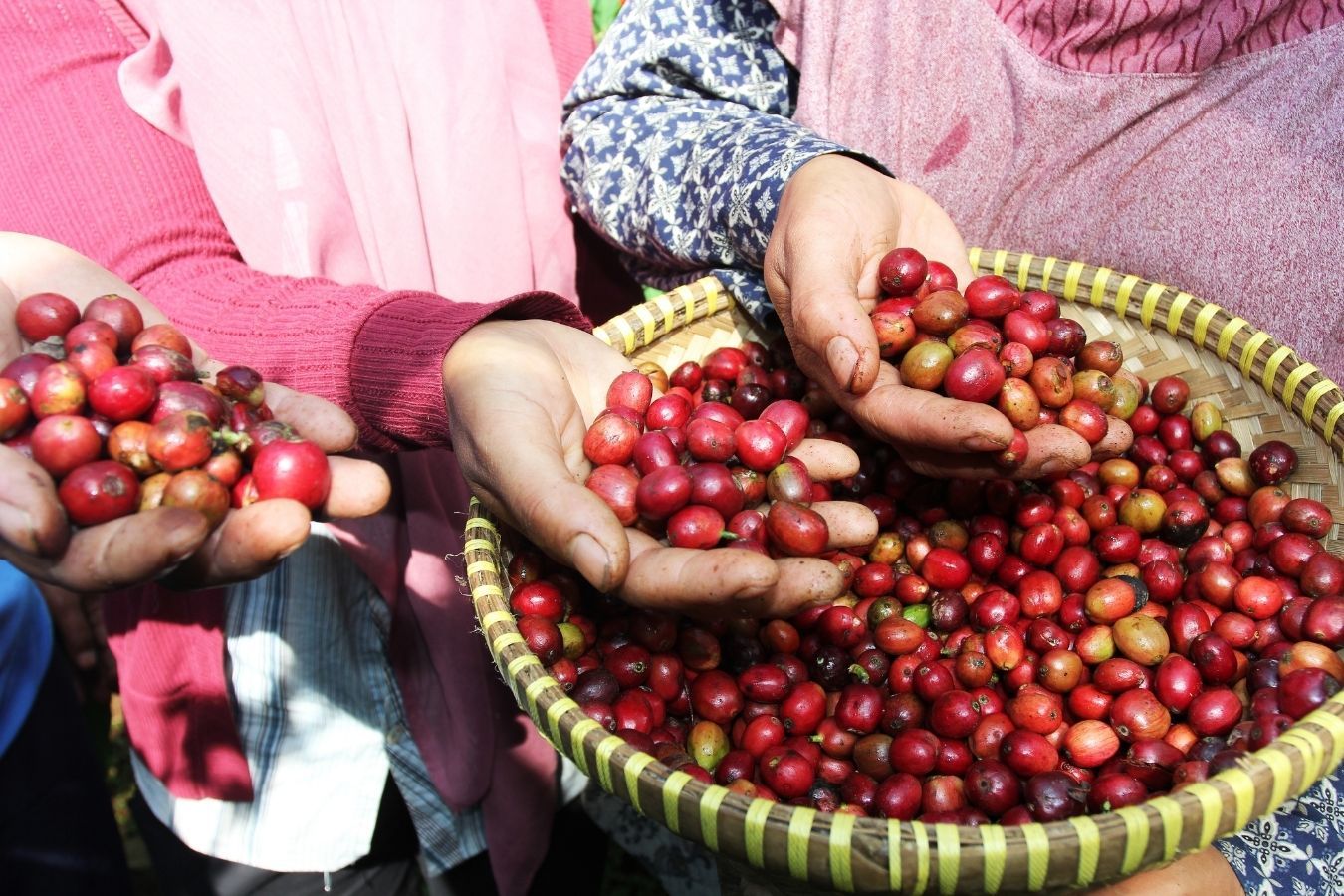
Beyond your favorite flavors and countries, you should also consider many other things when buying coffee beans. These factors include how much it costs, what kind of business ethics a farm or importer has, and even how politically stable a country is. Regarding availability, some areas or farms may not be able to produce coffee for a while because the coffee plant is susceptible.
This means that you may not always be able to get the same type of coffee beans from the same supplier. Other things to look out for when you buy green coffee beans are changes in flavor profiles and many beans that aren’t good or don’t match your taste preferences.
Coffee Sourcing: Choose who you want to work with.
Now that you know which coffee beans from which countries will make your drink taste how you want, it’s time to choose a coffee supplier. If you want to roast your beans, there are two main ways to get them: through coffee importers or directly from the farms. Here are some things to keep in mind as you think about which direction your business should go:
Importers
There are a lot of people in the coffee business who import coffee. They are middlemen who buy and sell green coffee beans that haven’t been roasted. Importers are responsible for setting up a profile for each coffee and ensuring it’s good. This gives you more control and consistency over your product. This is important because coffee beans can vary from lot to lot and season to season.
There is a good chance that an importer will charge at least $4.50 a pound for the beans they bring in and then sell to someone else.
When you buy food from a grocery store, you don’t have a relationship with your farmer, and the prices are higher than when you purchase food from a farm directly. Check out this complete list of green coffee importers as you look for new business partners.
Farms
You don’t need to buy coffee beans from a farm to make your cafe successful. However, many specialty coffee shops keep in touch with the farms from which they buy their beans. A lot of business owners stay in touch with their supplier farms. For some people, it means going to the farms, bringing them supplies, and getting to know the farmers more personally.
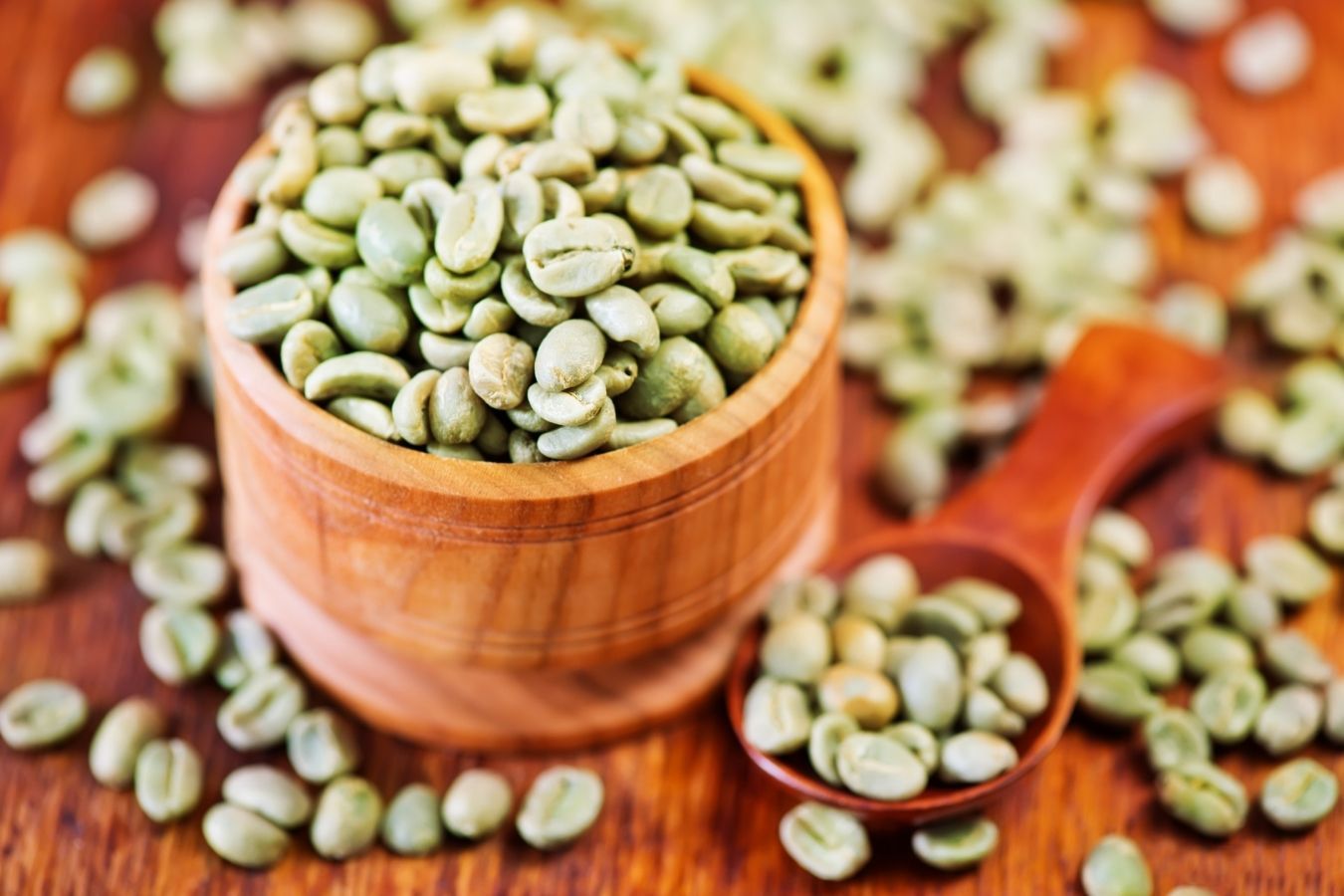
In the form of green beans, the price a coffee farmer should charge to pay their workers a living wage is about $3.75 per pound or about $3.75 per pound. The main advantages of this method are that it is more transparent, you can build relationships with your farmer, and the prices are lower.
However, the exporting process is a big problem. You must do much more work than sending beans to your roastery. You’ll need to find an exporter or importer to get the beans from the coffee producer and figure out how to pay taxes and follow regulations when moving coffee across borders.
To make this process easier for their customers some producers work with a single exporter to make it easier for their customers.
Try Before You Buy
If you work with a coffee importer or a farm, you must try their products before buying them. This is an integral part of the sourcing process. “Cupping” is the standard way to sample coffees in the industry. It involves looking at, smelling, and tasting coffee samples to see how they compare.
How it works:
You can get a sample of each coffee you want to try from a potential supplier. You get 250 to 500 grams of each coffee you request from the importers and the farms. Samples from importers may come ready to grind or be green beans that you need to lightly roast before you can test them out and see how they taste.
As a rule, green beans are the sample food from farms. Samples should be roasted as needed to compare them all accurately. Keep the roast level of each coffee across the pieces so you can do this.
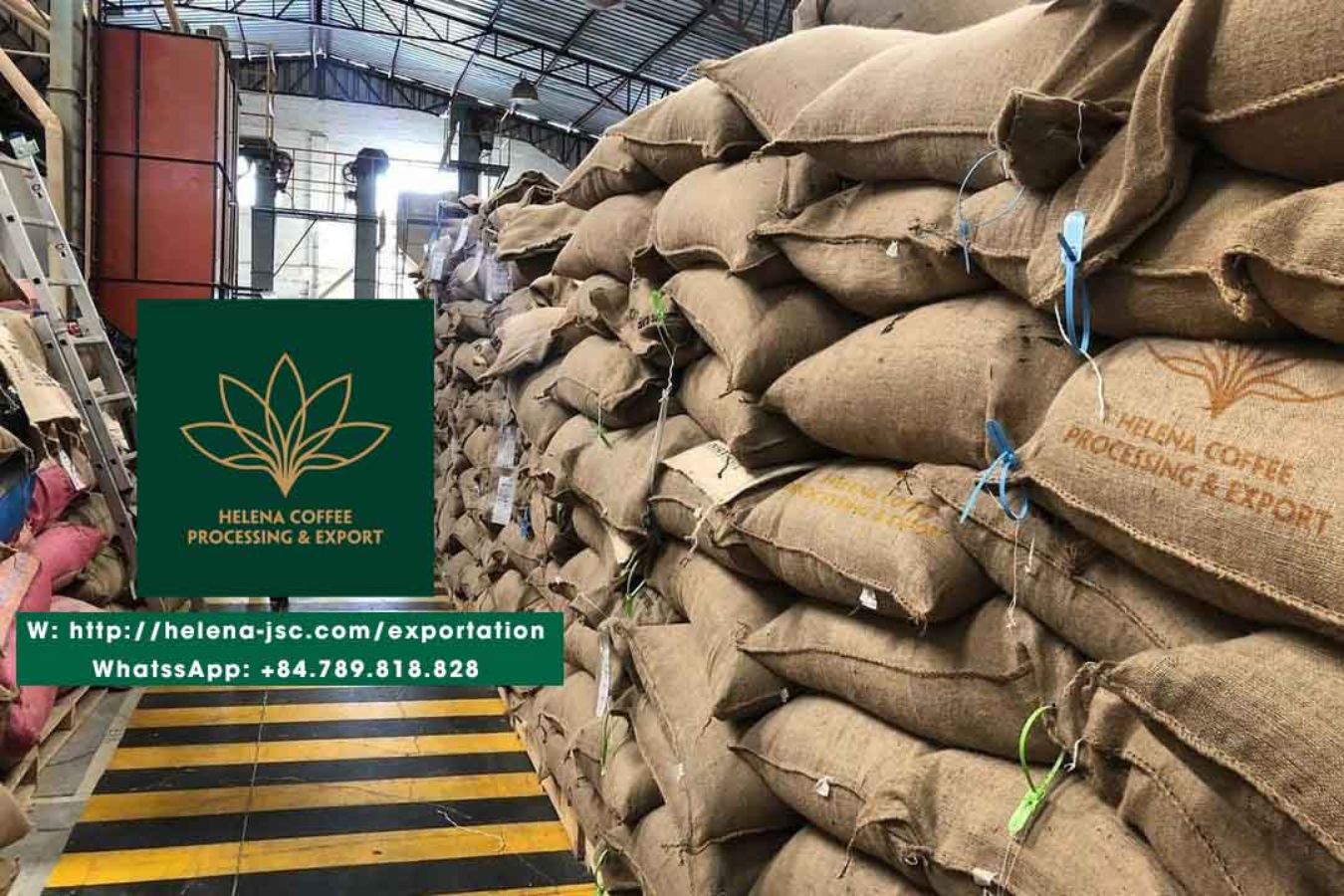
To look at each sample, follow the “cupping” process. Each type of coffee will need five glass cups and one water bowl. You also need water, a kettle, glass cups, trays, tasting spoons, and one water bowl for each type of coffee. When “cupping” your coffee, keep the same amount of coffee, water temperature, glass cup size, grind, and extraction time for each cup.
- Prepare the area where you will be “cupping” so that it is ready.
- Smell the smell of dry coffee.
- Fill the drinking glasses with water, then close them.
- Break up the crust.
- Scrape off the crust.
- Enjoy the coffee.
- Taste the coffee twice as much.
Recommended: Read our complete How to Cup Coffee guide to learn about cup coffee.
Find Out the Fair Price
How much should you pay for good beans? You should think about these general rules before you buy coffee:
The price a specialty coffee farmer should charge you to pay their workers a living wage is about $3.75 per pound of green beans.
Most likely, a coffee importer will charge at least $4.50 per pound to get the beans to their warehouse and then to you. This is how much they will make.
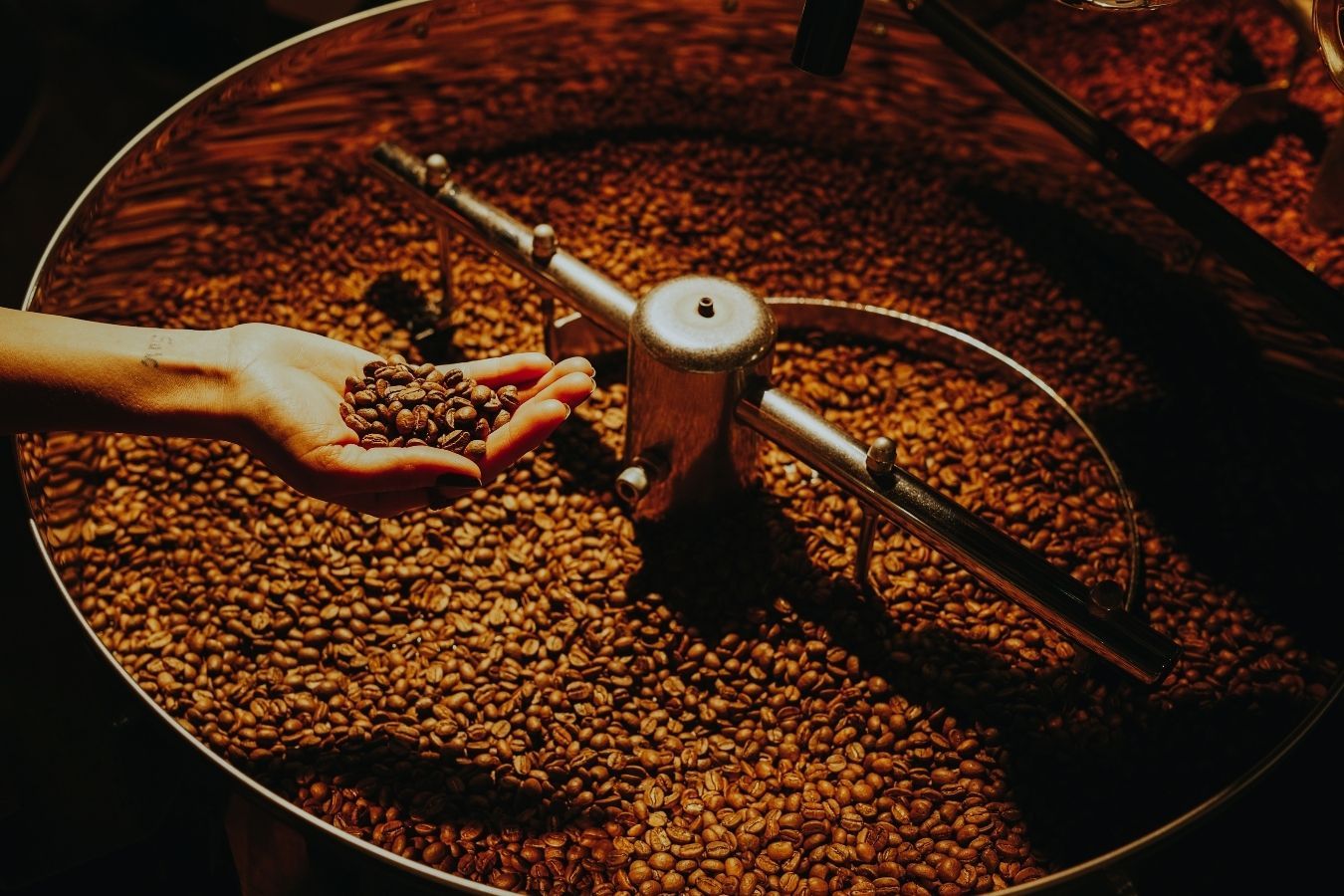
To get your coffee beans, you should expect to pay the above prices per pound, but you should also expect to pay for labor, packaging, energy, and other things. As a last resort, you can use shared roasting space to cut down on the cost of your equipment.
Finally, buy your beans!
Work with your famous coffee importer or farm supplier to buy and ship your favorite beans. You can do this based on your “cupping.”
Roasting coffee beans isn’t part of your business plan, but you can still buy coffee from a wholesale roaster. This way, you can get it quickly and cheaply. In this way, you don’t have to worry about selling many of the same kinds of coffee, so you can show off different roasters and give your customers more options.
Choose the right wholesaler for your business based on how good their coffee tastes and how easy it is for you to get to them.
Suppose you don’t have access to the coffee you want to sell in your area. If that happens, you’ll need to consider the extra costs and time it takes to ship coffee from a roaster in another city or state. You might also want to consider whether a wholesale account with a roaster comes with any training or equipment that could help you pay for your coffee.
